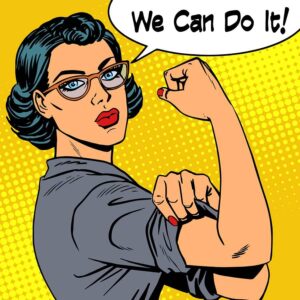 What’s the status of gender equality in the United States? According to the United Nations, it’s appalling. While we may feel like we’ve been making strides towards equality, sometimes, we can’t see the forest for the trees. Case in point, a delegation of human rights experts from Poland, the United Kingdom and Costa Rica spent 10 days in December touring the U.S. to prepare a report on the nation’s overall treatment of women. The three women – who lead a United Nations working group on discrimination against women – visited Alabama, Texas and Oregon to evaluate a wide range of U.S. policies and attitudes, as well as school, health and prison systems.
What’s the status of gender equality in the United States? According to the United Nations, it’s appalling. While we may feel like we’ve been making strides towards equality, sometimes, we can’t see the forest for the trees. Case in point, a delegation of human rights experts from Poland, the United Kingdom and Costa Rica spent 10 days in December touring the U.S. to prepare a report on the nation’s overall treatment of women. The three women – who lead a United Nations working group on discrimination against women – visited Alabama, Texas and Oregon to evaluate a wide range of U.S. policies and attitudes, as well as school, health and prison systems.
All three delegates were appalled by the lack of gender equality in America. They found the U.S. to be lagging far behind international human rights standards in a number of areas, including a 23 percent gender pay gap, maternity leave, affordable child care, the treatment of female migrants in detention centers, inferior women’s reproductive rights, and overall violence against women.
Frances Raday, the delegate from the U.K. was quoted as saying, “So many people really believe that U.S. women are way better off with respect to rights than any woman in the world. They would say, ‘Prove it! What do you mean other people have paid maternity leave?’”
The inspectors’ findings are shocking. Sure, women are still underrepresented at every level in the corporate pipeline, are lagging behind in public office, and in some instances really questioning how to have it all, but we are making progress. As of 2014, there were almost 9.1 million female-owned businesses in the U.S., generating more than $1.4 trillion (yes, with a “T”) in revenue. The percentage of women who are household breadwinners is rising. Young American women are 33 percent more likely than their male peers to have earned a college degree by age 27. And around the world, women hold several of the highest offices in the land.
All that being said, the UN inspectors’ findings should not be taken lightly. We are lagging behind in several key areas, and we need to look to our sisters to close the gap. After all, when women connect and collaborate we can do anything. Women need to be empowered to become change agents — both to change their opportunities and to change today’s culture.
The inspectors’ full report is set to be released in 2016, which I’m sure will provide a clear call to action. Until then, I think it’s obvious that we still have work to do. I’m convinced that we can do it if we all work together. I support today’s women-helping-women movements because we create our greatest impact when we work together; that is how we can transform our lives and the world. It is time to lead, and together we can push the doors to equal opportunity wide open, making room for our sisters at the table.

